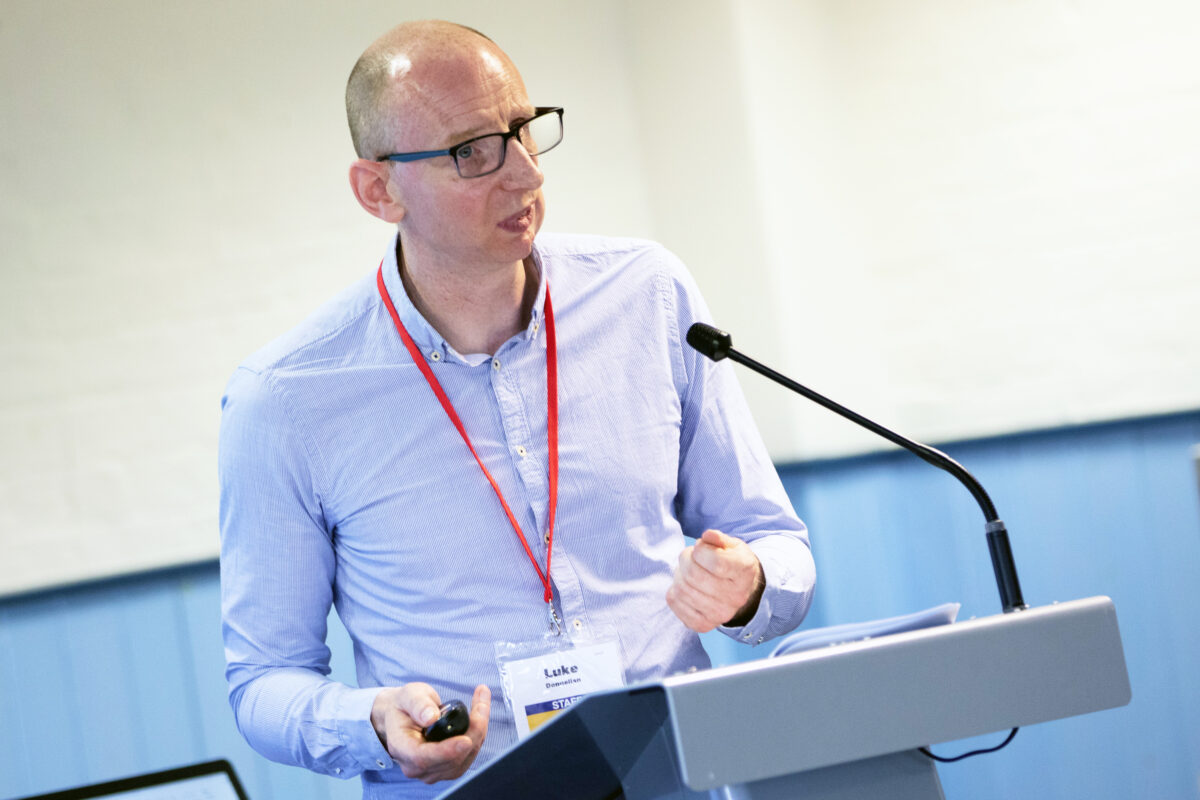
Earlier this year, Humanists UK relaunched Understanding Humanism, its dedicated website providing resources for teachers and parents. We spoke to Director of Understanding Humanism Luke Donnellan to find out more about the programme.
Hi Luke. For anyone who doesn’t know, what would you say are the main aims of Understanding Humanism?
We aim to provide all young people with the opportunity to learn about humanism as part of an inclusive education about worldviews.
And Understanding Humanism exists because we want to make sure that free, high-quality education resources are available to both teachers and parents. As well as education resources, the website provides trained school speakers, and continued professional development opportunities for teachers.
The resources are popular. Last year, they were downloaded over 30,000 times, and we also speak to tens of thousands of students every year through the school speaker programme. The relaunched website has over 100 new resources designed to make it even easier to teach about humanism to all age groups. We’ve also got resources on there that are pitched at adult audiences too, including our two free online courses with Alice Roberts and Sandi Toksvig, and links through to our Humanist Heritage website, which celebrates the rich and influential history of humanism in the UK.
What kind of feedback are we receiving from teachers about Understanding Humanism?
We receive lots of positive feedback from teachers. Last year the average rating by teachers of our school speakers was 4.9 out of 5! There are very few good resources out there on the non-religious, so we’ve found that teachers really appreciate that we make so much available for free. We’re happy to receive critical feedback too. We want our resources to be as helpful to teachers as possible and so the more we hear from them, the better we can support their needs!
Why is it important that young people have the opportunity to learn about humanism?
That’s a good question. Really, a better understanding of the landscape of worldviews (both religious and non-religious) can support young people to navigate today’s often confusing world. It helps them understand both history and current affairs – why people behave the way they do and what motivations might lie behind people’s actions. With increasing numbers of young people identifying as non-religious, it’s essential that humanism, as the predominant worldview of the non-religious, is included. Learning about humanist thought and action is also fascinating in its own right – over 2,500 years of attempting to answer life’s biggest questions from a naturalistic, non-religious perspective! When done well, it really supports young people to become critical and reflective thinkers.
What are the main challenges we face promoting humanism as part of RE lessons?
We’ve come a long way in shifting teachers towards the recognition that teaching about humanism needs to be included in religious education. It now appears in more syllabuses and schemes of work than ever before. However, there’s still a great deal of work to be done. There’s still hostility out there, too. And there are an awful lot of misconceptions about humanism – what it is and isn’t. Ironically, our resources address these!
We also face new challenges that relate to how people think we should teach about the non-religious, in ways which dilute the time available for teaching about humanism. We’re seeing resources that focus disproportionately on how many non-religious people still hold religious beliefs, as well as inaccurate data about the number of humanists, and far too much focus on the things humanists don’t believe in rather than on the things they do. The history of the subject inevitably means that some teachers are trying to view humanism through a religious lens instead of seeing it in its own terms. We’re working to overcome this, though, and making progress every day.
How have attitudes changed in recent years towards humanism as part of RE lessons?
Five years ago, when attending RE teachers conferences, we would hear questions such as ‘Who are you?’ and ‘What is humanism?’ Today we are far more likely to hear people say ‘We love your resources!’ and ‘Our students really enjoy learning about humanism.’ That always feels good.
Could you tell us more about the school speaker programme and how people can get involved.
Our school speakers visit classrooms across the country to talk about what it means to have a humanist approach to life and answer young people’s questions. In 2019 we spoke to around 50,000 young people – that’s about ten times greater than five years earlier. The pandemic slowed things down a lot. However, we started offering remote visits to schools which have been popular, and we’re now seeing demand increasing again. We’re always looking for people who can explain humanism in an accessible way – and who don’t mind facing tricky questions! We run several training courses every year. If you’re interested, please get in touch.
When did you begin to identify as a humanist?
I’ve had a humanist approach to life for a long time but it’s only more recently that I started to use the label. I’ve never been a big fan of labels. They can sometimes be problematic. However, I’ve become convinced that there is value in identifying as a humanist. In a world in which there still exist many challenges for the non-religious, a shared label can help increase the strength of a shared voice calling for freedom and equality.
Thank you.

